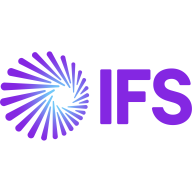

SAP ERP and IFS Cloud Platform compete in the enterprise resource planning category. SAP ERP seems to have an edge in comprehensive feature integration, while IFS Cloud offers notable adaptability and user-friendliness.
Features: SAP ERP enhances business efficiency with a focus on finance, inventory, and production, offering real-time transactions and industry-specific customization. It is renowned for seamless integration of business processes. IFS Cloud provides strong field service management and asset maintenance functionalities, promoting a modular architecture that allows easy adaptation and integration with other systems.
Room for Improvement: SAP ERP faces challenges with high cost and complex user experience. Users report difficulties in system integration and the need for simpler workflows. IFS Cloud needs improvements in reporting and high-volume transaction handling. Its implementation process can be complicated, with user-friendly documentation and training requiring enhancements.
Ease of Deployment and Customer Service: SAP ERP is generally deployed on-premises, with satisfactory customer support but variable response times. IFS Cloud offers versatile deployment options, including on-premises, hybrid, and cloud solutions, with service highlighted for adaptability. Users of IFS seek clearer guidance and faster resolutions.
Pricing and ROI: SAP ERP is noted for high licensing and maintenance costs, suitable for large organizations with a typical ROI seen in three to four years. IFS Cloud provides cost-effective, competitive pricing, especially for medium to large enterprises, with flexible licensing for scalability and a positive ROI despite notable initial setup costs.
SAP ERP did provide value for money.
It was very quick, and we didn't have many tickets, but every time any issues arose, they were very quickly resolved.
SAP technical support is very good.
The technical support is good, but you do not get it from the beginning as you must go up the ladder.
IFS Cloud Platform has standard functionalities that follow the standard supply chain management processes, and it is easy to customize or configure.
It is scalable when moving from one version to another or adding additional components like warehouse management.
The scalability of SAP ERP is excellent.
Now, with the drastic developments especially in the cloud applications known as Arena on IFS Cloud Platform, it has improved tremendously.
Production processes would be on hold without stability, so it is quite important that the software is very stable.
Stability-wise, SAP ERP is the best product among others.
They are working on IFS AI, but we have not explored much into that yet, and if they want to keep their competitive edge, that is an area they need to concentrate on.
There is not much available online, and the documentation availability is on the lower side compared to other products, especially Maximo.
SAP ERP has been left behind as they moved to S/4HANA with the HANA database.
Features that allow transactions based on barcoding should be part of the ERP component.
We are using version 6.0 and it meets our needs.
Small and medium companies can struggle with the pricing.
The pricing for SAP ERP is medium but slightly on the higher side.
The cloud feature in IFS Cloud Platform is predominantly valuable, especially the enterprise asset management module, which IFS has very good business into, along with strong finance, project management, and supply chain management modules.
There are fewer fields on the user screen compared to other products.
The consistent integrations and real-time data analytics in SAP ERP significantly enhance the decision-making process by facilitating follow-ups and action points.
SAP ERP is particularly strong in manufacturing, from production planning to plant maintenance, then Material Management itself, and managing warehouse management and inventory control.
SAP ERP has impacted our organization positively because it is highly customizable to build any process we have in our companies and to write programs.
| Product | Market Share (%) |
|---|---|
| SAP ERP | 17.0% |
| IFS Cloud Platform | 2.9% |
| Other | 80.1% |


| Company Size | Count |
|---|---|
| Small Business | 14 |
| Midsize Enterprise | 9 |
| Large Enterprise | 10 |
| Company Size | Count |
|---|---|
| Small Business | 31 |
| Midsize Enterprise | 30 |
| Large Enterprise | 76 |
IFS is the world’s leading provider of Industrial AI and enterprise software for hardcore businesses that make, service, and power our planet. Our technology enables businesses which manufacture goods, maintain complex assets, and manage service-focused operations to unlock the transformative power of Industrial AI™ to enhance productivity, efficiency, and sustainability. Industrial AI is IFS.ai.
IFS Cloud is a fully composable AI-powered platform, designed for ultimate flexibility and adaptability to our customers’ specific requirements and business evolution. It spans the needs of Enterprise Resource Planning (ERP), Enterprise Asset Management (EAM), Supply Chain Management (SCM), Information Technology Service Management (ITSM), and Field Service Management (FSM). IFS technology leverages AI, machine learning, real-time data and analytics to empower our customers to make informed strategic decisions and excel at their Moment of Service™.
We monitor all ERP reviews to prevent fraudulent reviews and keep review quality high. We do not post reviews by company employees or direct competitors. We validate each review for authenticity via cross-reference with LinkedIn, and personal follow-up with the reviewer when necessary.